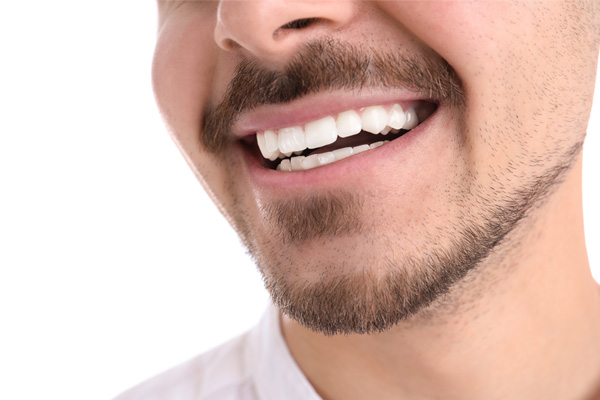Habits to Avoid with TMD

TMD stands for temporomandibular joint disorder. This issue usually involves pain in the temporomandibular joint, which is often referred to as TMJ, and the problem may also make it difficult to either open or close the jaw. Persons who have been diagnosed with TMD often look for ways to ease the discomfort and improve jaw mobility.
Symptoms that indicate TMD
TMD has the potential to significantly disrupt a patient’s life. According to the Mayo Clinic, this disorder often involves several symptoms:
- Pain in either one or both of the temporomandibular joints
- “Locking” in the TMJ, which makes it difficult or impossible to fully open or close the jaw
- Discomfort or tenderness in the jaw or face
- Pain or difficulty with chewing
- Clicking or popping with TMJ movement
Habits that aggravate TMD
TMD can be distracting and painful, but patients with this disorder can reduce its impact. Changing some repetitive mannerisms or making alternative food choices can help make a difference.
Resting the jaw on the hands
Plenty of people prop up their heads on their hands. According to the American Student Dental Association, this seemingly benign action forces the jaw into an unnatural position, which can make the pain in the temporomandibular joint worse.
Biting the nails
It may be easy to bite nails mindlessly, but this habit moves the jaw in ways that can exacerbate TMD. The habit can be a challenging one to break, and it usually requires a very conscious effort. Sometimes, redirecting this behavior, such as snapping a rubber band against the wrist, may help.
Grinding the teeth
Teeth grinding, which is also called bruxism, is not usually a conscious choice. It often happens while a person is asleep. For patients who grind their teeth frequently, a dentist might recommend a mouthguard. These devices cannot stop individuals from clenching their teeth while asleep, but they can mitigate some of the negative effects of grinding.
Chewing gum or tough foods
Anything that requires a lot of work or movement from the jaw is likely to make TMD symptoms worse. Individuals do not necessarily need to permanently avoid foods that are tough to chew or stop chewing gum altogether, but staying away from both during a period of increased temporomandibular pain may help resolve the discomfort.
Clenching teeth due to stress
Like bruxism, clenching teeth in response to increased tension is often unconscious. However, persons who clench their teeth as a stress reaction while awake can consciously change the behavior. For these patients, purposely relaxing the jaw while under stress may help relieve TMD symptoms. Other stress management techniques may also reduce the unconscious urge to clench the jaw in the first place.
Conclusion
Avoiding the bad habits listed above may help resolve TMD pain. Unfortunately, severe cases may not always respond to lifestyle adjustments alone. For patients with a condition that still persists despite behavioral changes, a visit to a dental professional for evaluation can address remaining pain or mobility issues.
Request an appointment here: https://www.thanasasdds.com or call Thanasas Family Dental Care at (248) 260-2878 for an appointment in our Troy office.
Check out what others are saying about our dental services on Yelp: TMJ Dentist in Troy, MI.
Recent Posts
Temporomandibular Joint Disorder, more commonly known as TMJ or TMD, is a condition caused by inflammation of the joint that allows the jaw to hinge or its surrounding muscle, attributed to natural causes or a point of impact such as whiplash. Whether the reason is natural over time or due to sudden impact, it’s important…
Do you suffer from a TMJ disorder, and are you looking for a TMJ dentist? Individuals can start by seeing their primary general dentist, who has training on the temporomandibular joint and how it affects one's dental health, including the jaw and entire skull.In order to utilize the services of a TMJ dentist, it is…
TMD is a condition that causes pain in the jaw. If you have TMD, you might have clicking or popping sounds when you try to open or close your mouth. The good news is that you have several treatment options available. Keep reading to find out more.Sometimes, the symptoms might go away without being treated.…
Dentists can treat a variety of dental issues, including TMJ. While you no doubt know all about preventing and treating tooth decay and gum disease, problems with the jaw and its joints might be a little more foreign. The effects of this condition can be severe, especially if you neglect to see the dentist. With…


